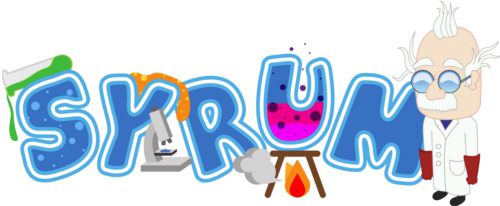Is Syrum a Real Game Changer?
With "digital progress" now picking up pace in pharma sales & marketing, can Boehringer Ingelheim's social game, SYRUM revolutionise pharma's timid approach?

Like many of us interested in pharma and digital, I attended the launch of Boehringer’s new Facebook game, Syrum at the London Science Museum last week – with waiters in lab coats and drinks served appropriately in test tubes, the atmosphere and the event were both fantastic.
The game itself looks like a significant step for pharma’s public-facing digital activities. In the intentions of its primary creator, Boehringer’s John Pugh, the platform wasn’t built with product or therapy area awareness in mind, rather – much as Farmville isn’t intended to appeal just to an audience with an interest in farming – the game is meant to be an entertaining mass market way to highlight the valuable work that the industry does while highlighting Boehringer’s position as an innovator.
As with any digital initiative, however, its success will be judged by its appeal to its target audience and this raises some interesting questions: is an educational game an appropriate strategy? Is the game actually fun and rewarding to play? And how will Boehringer ultimately judge the success of this very public initiative?
At the launch, I spent some time with John and discussed Syrum’s long gestation period and journey to get to the point of a successful beta launch. I was particularly interested in the development process itself. Was the game a product of the lean, agile, user-centred processes common to most of the Silicon Valley originated (or inspired) start-ups playing in both healthcare and wider sectors?
The length of the development process would seem to suggest this wasn’t the case. Syrum was first announced on Boehringer’s Facebook page back in June 2011, and Pugh would have liked to have “done things differently” testing “with small groups on elements of the game”, but was prevented from taking this approach due to “technical snags”. Nevertheless, in common with agile product development the game is apparently “set up in a modular way, so elements can change.”
Pugh is also open about the fact that some core assumptions – including the game’s functionality, core audience demographic and the level of promotional spend within Facebook itself – are yet to be tested, and his attitude is refreshing: “this is an experiment; we don’t know where it will end.”
From my point of view, regardless of whether Syrum succeeds or fails as a game-based initiative, it still provides a strong statement to the world about Boehringer’s position as a pharma company with an outside the box approach and a strong commitment to innovating for its audiences.
Perhaps more importantly, the very public nature of the launch and publicly accessible success stats in the form of Facebook likes and Twitter followers for the game’s mascot, Professor Syrum, will help the industry focus on what returns they really want (and should really expect) from their digital initiatives. In this case, is the return to be found in enduring engagement with a generation of increasingly pharma-friendly gamers, or is it in the wider media coverage of the initiative itself?
Only time will tell, but for now I need to get back to the lab…
